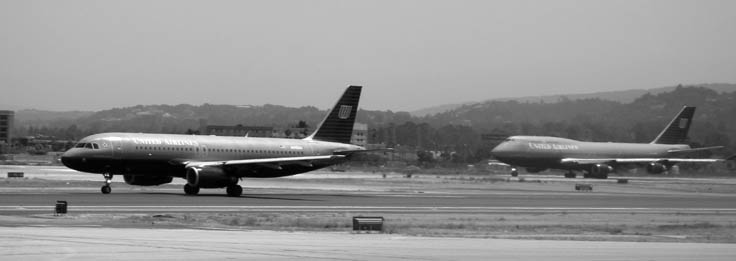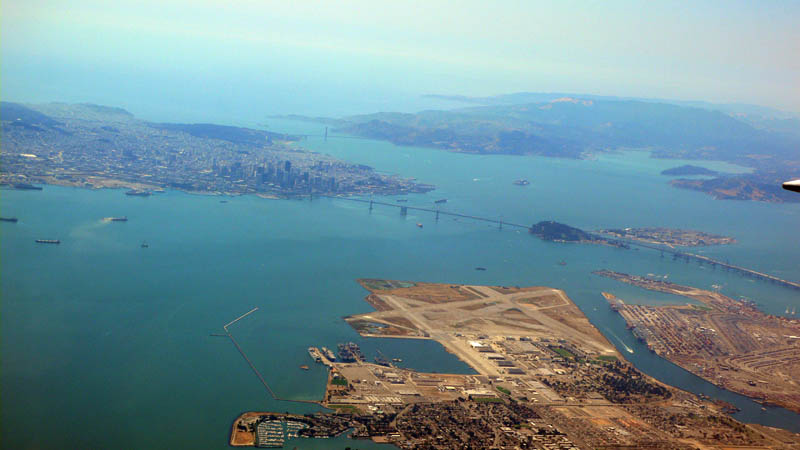You board your flight to Chicago, $600 ticket in hand, and do a quick survey of the people sitting around you. Turns out 13D paid only $300 for her flight, while 14E shelled out nearly $1,000 for his. It’s a reality of air travel that infuriates passengers, but now several new travel websites are promising to demystify the seemingly nonsensical world of airline ticket pricing.
It was exasperation with existing online travel tools that led Robert Metcalf to develop flyspy, a site currently in alpha mode using fare data from Northwest Airlines.
“I once spent six hours combing through different websites,” says Metcalf, who wanted to see how prices changed if he flew into a different airport or adjusted his travel dates and length of stay. “I ended up compiling all the data I gathered into an Excel spreadsheet, and started wondering why there wasn’t a site that provides this kind of functionality.”
Category: Business
Midwest Airlines Expansion Plans
Midwest Airlines in the coming months will make several significant fleet decisions that will guide the carrier through a planned network and schedule expansion. This marks a significant turnaround for the airline, which barely averted bankruptcy three years ago.
Since its 1984 launch, Midwest was always known for its product and service, which was better than many of its larger competitors. The airline won praise from business travelers for its all-first-class seating and a full meal service, even on many of the shorter flights. Following the post-9/11 crisis, however, Midwest quickly realized that its product alone would no longer bring in the revenue premium it once received.
The carrier stumbled for several years but was able to win labor concessions and relief from aircraft lessors during the summer of 2003 that kept the carrier out of bankruptcy court. That same year, after facing a barrage of competition from low-cost carriers, Midwest diverged from its original strategy by adding seats to its MD-80 fleet and targeting leisure passengers with a new “saver service.” The carrier kept its Boeing 717 fleet in the traditional all-first-class “signature service.”
Luck & Business Strategy
Because we underestimate how much variation can be caused simply by luck, we see patterns where none exist. It’s no wonder that management theory is dominated by fads: every few years, new companies succeed, and they are scrutinized for the underlying truths that they might reveal. But often there is no underlying truth; the companies just happened to be in the right place at the right time. In 1999, after all, it was hard to find a business book that didn’t hold up Enron as the embodiment of one important principle or other. Of course, some strategies and structures work better than others, but real meaning emerges only over the long term.
Judge Rules a Tax Shelter in KPMG Case Is Legitimate
The heart of Judge Ward’s ruling was that the I.R.S.’s retroactive use of tougher Treasury Department rules in 2003 on liabilities like those in Blips was “ineffective” and “not enforceable” because it was retroactive. The Internal Revenue Code generally prohibits retroactive regulations. The I.R.S. said in 2000 that it would formally challenge Blips deductions claimed by taxpayers.
Jerrold Cohen, a lawyer in Atlanta for Mr. Nix and Mr. Patterson, said yesterday that Judge Ward’s ruling showed that “the government isn’t allowed to change the rules just because it doesn’t like the result.”
Great example of the mess that is our tax system. The Opinion (PDF).
Stressed Air Travel System?

Flying around recently, amid full planes, high fuel prices, employees who have endured some tough years and challenging weather, it seems to me that the airlines, while trying very hard to make money, are really stretching their employees and systems. Juggling planes and tickets amid cancellations and delays one night, I ended up on a 777. Passengers boarded the full flight, were instructed to close the overhead bins and buckle up. Minutes before departure, the steward announced that there were no pilots. They would be arriving in 45 minutes and we were free to get off the plane….. The steward, when asked, mentioned that they just found out about this (no pilots! – seems odd in 2006 that they were not aware that the pilots were not around, what with elaborate crew and equipment management software). I grabbed my bags and ran over to my prior, delayed flight, swapped tickets and was later on my way.
This, and other recent examples make me wonder how far the airlines can push their systems and people…. I also noticed a number of rather rude passengers along with some great, hard working airline employees.
The Future of America Forecasts, Part 2
orecast #3: the death of the US Constitution.
The Constitution was originally designed to specify the duties for each of America’s three branches and to limit their powers. Its ability to do the latter function has faded rapidly since the New Deal. Already most of the Bill of Rights remain de jure in force but are de facto void, as can be seen by a Lexis search of successful attempts to use them in litigation – you’ll find almost none.
At some point soon the Constitution will become a purely procedural document, much like that of the former Soviet Union, and equally effective at preserving our liberties. Our rights will exist only on the sufferance of our government and our ruling elites. This is already true in the UK, as the “unwritten constitution” protecting the “rights of Englishmen” has blown away like smoke in the wind.
Ted Levitt
One of my favorite people (minds) on the planet and the person who coined the term “globalization” died at age 81: Theodore Levitt. The reason why Professor Levitt became such a force in my life was because in the ’80s — before any individual or company was thinking about going global — he turned me on to the importance of looking at the world as your market. He also knew how to deconstruct and solve problems by asking the right questions. Something to this day I still find myself doing. Here are some things I will remember the most about Levitt:
• Harvard Business Review — He holds the record with Peter Drucker for publishing the most articles in HBR.
• What turned me on to Levitt — “The Globalization of Markets” and five other great articles authored by HBR talents.
Using the term “globalization” in a 1983 Harvard Business Review article about the emergence of standardized, low-priced consumer products. He defined that globalization as the changes in social behaviors and technology which allowed companies to sell the same products around the world.
AOL: “Certain Death or Free Plus Ads”?
The WSJ reports that AOL is considering making online access to its service–including, importantly, email–free. (AOL email users currently have to pay for one of the company’s subscription plans, although much of the rest of the company’s content is already free.) Per the WSJ, this move would vaporize about one-quarter of the company’s revenue, or $2 billion. The company estimates that it would also result in the loss of 8 million paying subscribers.
Blodget also notes that Vonage’s recent IPO continues to be black comedy (public at 17, now 8.25 after just a month….
DeLorenzo and Wallace on Nissan / Renault / GM
Make no mistake – this isn’t about creating a new global automotive powerhouse well-equipped to do battle deep into this century, one that will keep Toyota from taking over the world. And this certainly isn’t about doing what’s best for General Motors and the people who have so much invested in the fortunes of the company. And this in no way, shape or form has anything to do with solidifying America’s manufacturing base or shoring up the economy.
No, this is about flat-out greed, pure and simple.
This possibility is not a case of what would be best for General Motors; it’s driven by egotism and greed. Setting the stage for it were the peculiarities of the financial markets; GM, the world’s largest car company, recently had a market capitalization barely above $10 billion, while its closest competitor’s market cap was $169 billion. Analysts now forecast that Toyota, the world’s second largest car company, should be worth $236 billion within the year, but faltering GM will be worth no more than $15 billion.
It is that situation that allowed a notorious corporate raider, Kirk Kerkorian, to buy 9.9% of GM’s outstanding shares for little or nothing. And with that purchase he gained the leverage to push his personal consultant — whose pay is based not on GM’s improved financial performance but on Kerkorian’s take from his investment in the motor company — onto GM’s board of directors.
On Lake Michigan, A Global Village
As Racine has changed, so have its politics. Once, a ritual antagonism for business was a sure vote-getter among Democrats. But Mr. Becker was elected three years ago with a pro-development message, pledging to trim jobs from the public payroll to free resources to attract new residents and businesses.
Racine’s future, Mr. Becker believes, lies in forging stronger links with the regional economy and global markets. Reinvention can be unnerving, he acknowledges, but he says it is his hometown’s best shot at prosperity and progress. “In the past, Racine was a self-contained economy,” he said. “But that is not an option anymore.”
No local economy truly mirrors the nation. But for Racine and its surrounding suburbs, the last few years have been marked by gradually rising prosperity, in step with the national trend. And the recent history of Racine, like that of the nation as a whole, is also the story of how a community comes to grips with the larger forces of globalization and technological change.